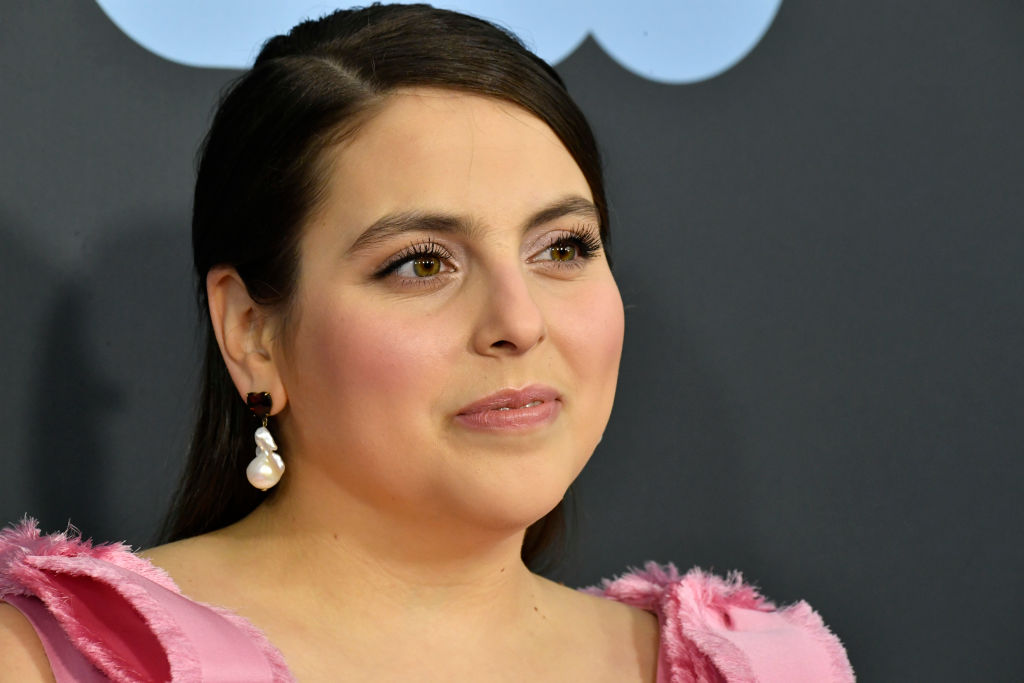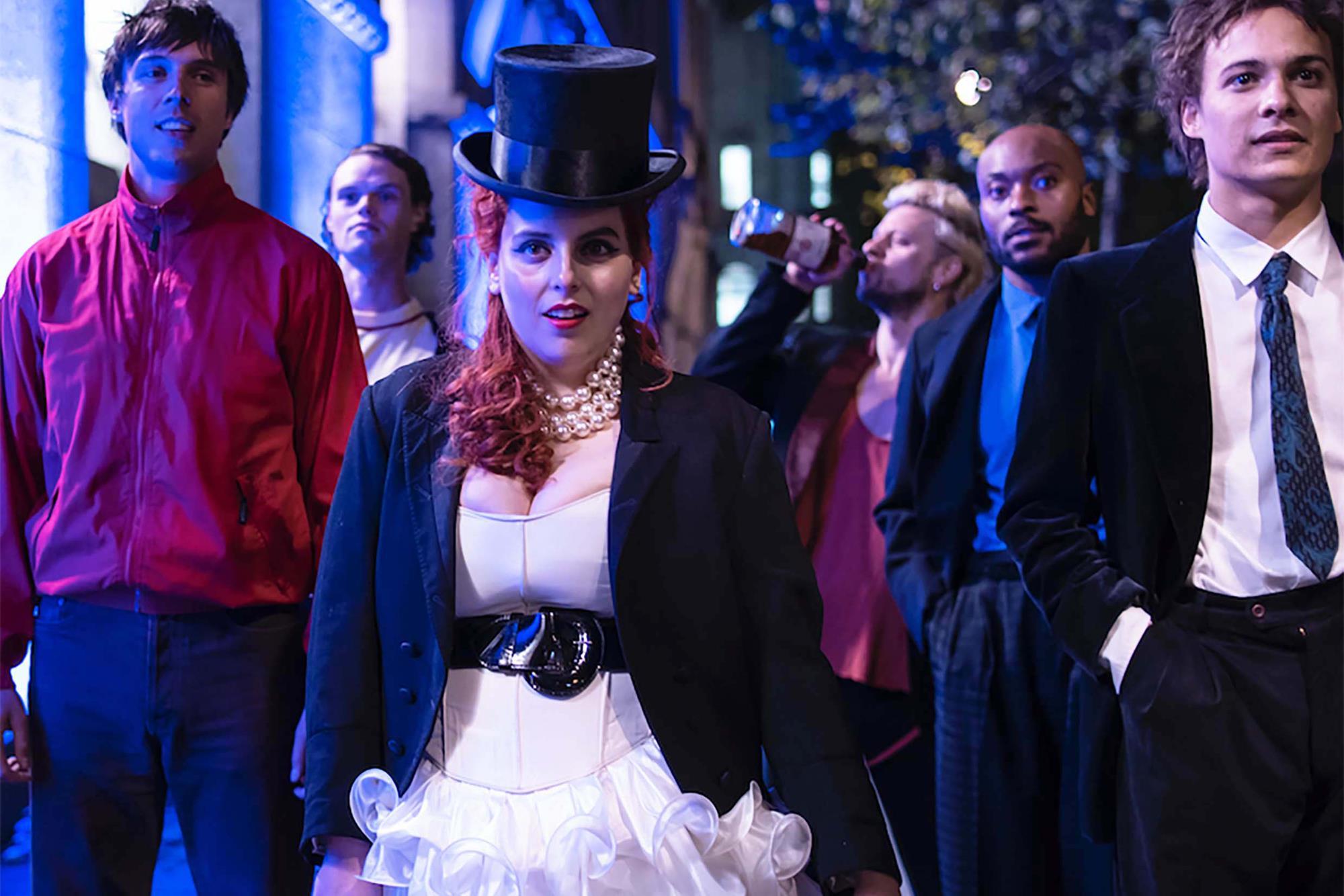
- Interviews
Beanie Feldstein And The Challenge of ‘How To Build A Girl’
Luckily, most people only have to navigate the treacherous waters of High School once; but for Beanie Feldstein, that experience has now been endured three times, cinematically at least.
“I am very fond of this trio of works,” the 26-year-old Golden Globe nominee declares about her appearance in the films Lady Bird, Booksmart, and the just-released How To Build A Girl, each of which transports the actress back to those formative teenage years. “When I was growing up, there were very few narrative films about young girls that offered different flavors, tones, and energies to their experience. I believe the more of these that are out there the better, and just having played these three women in these films has actually taught me a little bit more of who I am.”
For How To Build A Girl, based on the 2014 semi-autobiographical novel by Caitlin Moran, Feldstein slipped out of her American skin to play teenager living in Wolverhampton, England, who longs to escape from her mundane daily reality with a dream of something better, augmented by guidance from a fantasized panel of famous literary advisors.
To immerse herself into the Wolverhampton culture, the Los Angeles native moved to the Midland city, a two-hour drive north of London, took a job in a local store, and was given strict instructions by the film’s director, Coky Giedroyc, never to slip out of her developing British dialect, whether dealing with store customers or ordering her lunch.
“It was a challenge,” she now laughs about the experience. “But the local people there really embraced me, and by the end, I think I was like their mini Mayor.”

The young girl’s aspirations take flight, when at age 16, in an effort to make money to help her struggling Bohemian family, she gets hired to write for a noted music magazine. Thrust into a world she has long been sheltered from, the opportunity shatters her cocoon of adolescence, propelling her to the fast-moving motorway of adulthood, as the ever-so-nice Johanna becomes Dolly Wilde, a fast-talking, Goth-inspired cynic who takes no prisoners with her excoriating music reviews. But that venture eventually takes its toll as she realizes this new persona she has created might destroy everything she truly loves.
While Feldstein herself has yet to be seduced to an alternative persona than her own, she does recognize why Dolly felt she had to walk down that path.
“We have to do things that are prescribed to us in order to take advantage of an opportunity,” she explains during this interview. “With Johanna, she is told she is too nice and that her writings are too fangirl, and that to get ahead, she has to get a hate.” While there are those who need look no further than the current political landscape to find an illustration of this, Feldstein’s performance offers an empathetic insight about how once someone does decide to cross over to that dark side, it doesn’t feel dark anymore. It becomes warm and inviting.
“But what I love about Johanna is that she owns her slipups and comes through to the other side,” she adds. “That, to me, gives young women permission to make mistakes and not be defined by them.”

